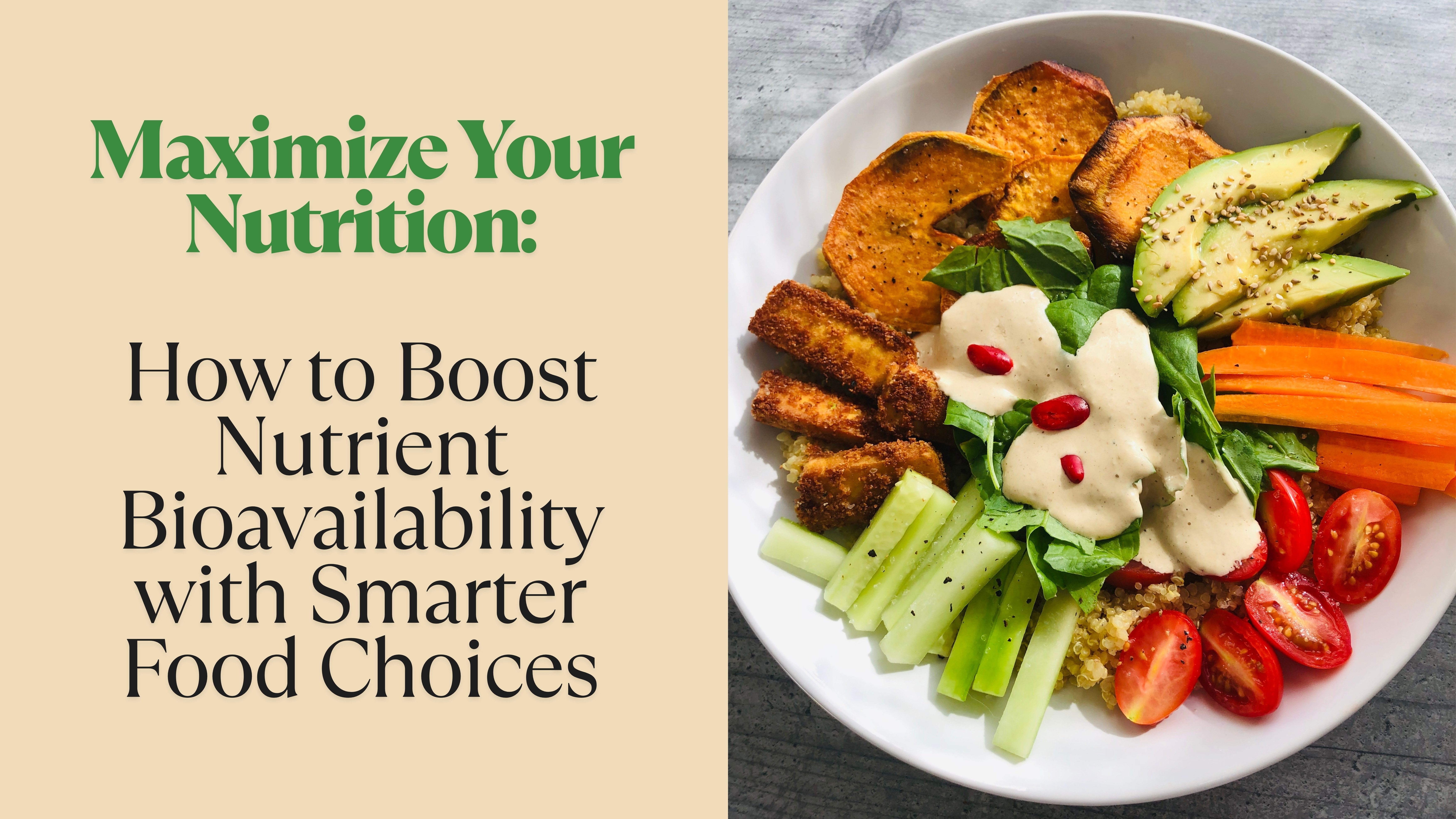Maximize Your Nutrition: How to Boost Nutrient Bioavailability with Smarter Food Choices

Ever wonder why a spinach salad with a splash of lemon tastes better? It’s not just flavor—it’s science. That little squeeze of lemon actually helps your body absorb more iron from the spinach. Welcome to the world of nutrient bioavailability—the key to getting the most out of what you eat.
What Is Nutrient Bioavailability?
Nutrient bioavailability refers to how well your body can absorb and use nutrients from food. You might be eating a healthy diet, but if your body isn’t absorbing the nutrients effectively, you’re missing out on many of the benefits.
Several factors influence bioavailability, including:
- The nutrient’s chemical form
- Food preparation methods
- Interactions between different nutrients
- Individual digestive health and genetics
Understanding how to enhance bioavailability can help you make the most of every bite, naturally and scientifically.
Common Problems That Reduce Nutrient Absorption
1. Anti-Nutrients in Plant-Based Foods
Many healthy plant foods contain compounds like phytic acid, oxalates, and tannins that can block the absorption of key minerals such as iron, zinc, and calcium. While these aren’t inherently harmful, they can be problematic in diets heavily based on grains and legumes.
Solution: Soaking, sprouting, fermenting, and cooking can reduce anti-nutrients and improve mineral absorption.
2. Poor Cooking Techniques
Boiling vegetables can leach water-soluble vitamins (like vitamin C and B vitamins) into the water, reducing their availability. Frying at high heat can also destroy sensitive nutrients.
Solution: Use gentle cooking methods like steaming or microwaving. These preserve nutrients better than boiling.
3. Missing Synergistic Nutrient Pairings
Some nutrients require others to be absorbed efficiently. For example, fat-soluble vitamins like A, D, E, and K need dietary fat to be absorbed. Calcium competes with iron for absorption. And iron from plants (non-heme iron) is poorly absorbed unless paired with vitamin C.
Solution: Learn food pairing strategies to enhance nutrient synergy. We’ll explore these more below.
Proven Strategies to Increase Nutrient Bioavailability
1. Cook Smart
- Steam or Sauté: Steaming preserves more nutrients than boiling, and sautéing veggies in olive oil boosts absorption of fat-soluble nutrients like beta-carotene and lycopene.
- Microwave Gently: Surprisingly, microwaving with minimal water can help retain both texture and nutrients.
2. Use Food Pairings That Work Together
Here are some of the most powerful pairings supported by science:
- Vitamin C + Iron: Eating vitamin C-rich foods (like oranges, strawberries, or bell peppers) with plant-based iron sources (like spinach or lentils) can increase iron absorption by up to 300%.
- Fat + Fat-Soluble Vitamins: To enhance absorption, add healthy fats like avocado, nuts, or olive oil to meals containing vitamins A, D, E, or K.
- Turmeric + Black Pepper: Piperine in black pepper increases the absorption of curcumin (the active compound in turmeric) by up to 2000%.
3. Prepare Foods to Lower Antinutrients
- Soak and Sprout Grains and Legumes: This reduces phytic acid and helps release minerals.
Fermentation: Foods like tempeh, kimchi, and sauerkraut not only reduce anti-nutrients but also introduce beneficial bacteria that support digestion and overall nutrient absorption.
Easy Tips to Practice Daily
- Add citrus to leafy greens or beans
- Use nut butters or olive oil in veggie dishes
- Choose fermented foods a few times a week
- Soak and sprout your lentils or quinoa
- Pair turmeric with black pepper in golden milk or curries
Conclusion:
Being healthy isn’t just about what you eat—it’s about how your body uses it. With a few science-backed strategies, you can upgrade your meals to deliver more vitamins, minerals, and overall value. Smart cooking and food pairing turn good nutrition into excellent health.